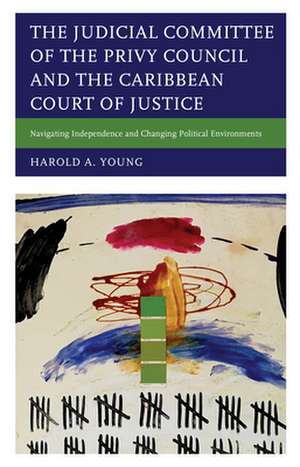JUDICIAL COMMITEE OF THE PRIVYCB
Autor Harold A. Youngen Limba Engleză Hardback – 30 iul 2020
Preț: 648.05 lei
Preț vechi: 841.62 lei
-23% Nou
Puncte Express: 972
Preț estimativ în valută:
124.04€ • 134.78$ • 104.26£
124.04€ • 134.78$ • 104.26£
Carte tipărită la comandă
Livrare economică 21 aprilie-05 mai
Preluare comenzi: 021 569.72.76
Specificații
ISBN-13: 9781498586948
ISBN-10: 1498586945
Pagini: 166
Dimensiuni: 152 x 229 x 18 mm
Greutate: 0.41 kg
Editura: Rowman & Littlefield
ISBN-10: 1498586945
Pagini: 166
Dimensiuni: 152 x 229 x 18 mm
Greutate: 0.41 kg
Editura: Rowman & Littlefield
Notă biografică
Harold A. Young is assistant professor at Austin Peay State University.
Descriere
This book examines the Judicial Committee of the Privy Council, an ancient colonial court, and how the Caribbean community, specifically, the fifteen former British colonies of the Caribbean Basin, are navigating their changing political environments during the transition to its own extraterritorial court, the Caribbean Court of Justice.
